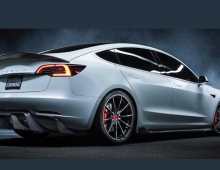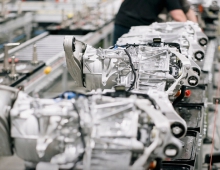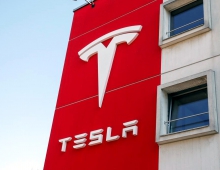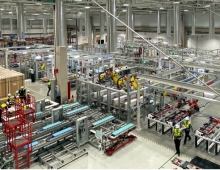
Tesla and Panasonic to Collaborate on Photovoltaic Cell and Module Production
Tesla Motors said it would collaborate with Panasonic to manufacture solar cells and modules in New York. Under the agreement, which is a non-binding letter of intent, Tesla said it will use the cells and modules in a solar energy system that will work seamlessly with its energy storage products Powerwall and Powerpack.
The Japanese company is already working with the U.S. automaker to supply batteries for the Model 3, its first mass-market car.
Panasonic is expected to begin production at the Buffalo facility in 2017 and Tesla intends to provide a long-term purchase commitment for those cells, Tesla said in a statement, adding the agreement is contingent on shareholders' approval of its acquisition of SolarCity.
Last week Tesla and SolarCity Corp shareholders agreed to vote on the proposed merger on Nov. 17, and the automaker said it would provide plans for the combined company ahead of the vote.
The two companies have entered into a non-binding letter of intent under which they will begin collaborating on the manufacturing and production of photovoltaic (PV) cells and modules in Buffalo, New York. Under this agreement, which is contingent upon shareholders' approval of Tesla’s acquisition of SolarCity, Tesla will use the cells and modules in a solar energy system that will work with Powerwall and Powerpack, Tesla’s energy storage products.
The parties intend for Panasonic to begin PV cell and module production at the Buffalo facility in 2017. Tesla intends to provide a long-term purchase commitment for those cells from Panasonic.
Tesla and Panasonic have been already collaborating in the production of electric vehicle and grid storage battery cells at Tesla’s Gigafactory.
Last week Tesla and SolarCity shareholders agreed to vote on the proposed merger on Nov. 17, and the automaker said it would provide plans for the combined company ahead of the vote.





















